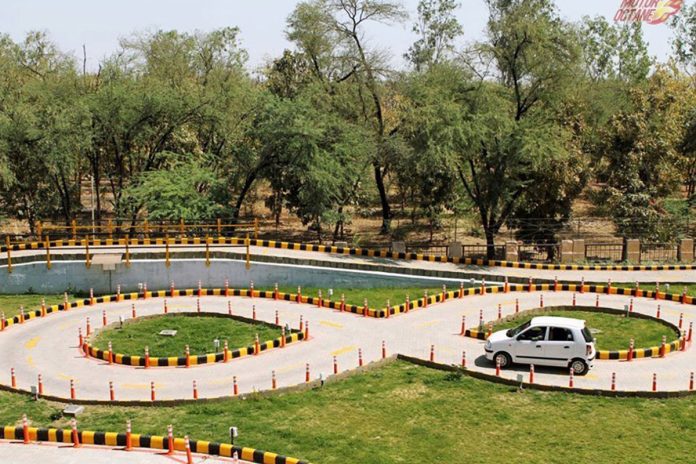Ahmedabad: Driving track tests are mandatory for anyone seeking a two-wheeler or four-wheeler driving license. However, the sensor-based driving test tracks at Ahmedabad and other RTOs are in poor condition, causing constant friction between applicants and government employees over test results.
Mirror recently highlighted these issues, prompting the transport department to consider installing hi-tech, AI-based driving test tracks at a cost of around Rs 78 crore across all RTOs in the state.
Struggles at the RTO
Getting a new or renewed driving license at the RTO has become a nightmare for citizens. The outdated, sensor-based test tracks, combined with inefficient government machinery, make the process a struggle.
Many drivers fail due to the poor condition of the test tracks at Subhash Bridge RTO. A recent Mirror article described how malfunctioning sensors, broken tracks for two-wheelers and four-wheelers, and outdated software and cameras at Subhash Bridge RTO lead to inaccurate test results and conflicts between the public and officials.
Hi-tech Solutions on the Horizon
According to transport department sources, new AI and video-analytical technology-based driving test tracks will replace the old sensor-based tracks in all state RTOs. Cities with high applicant volumes, such as Ahmedabad, Vadodara, Surat, and Rajkot, will be prioritized for these smart track installations.
A senior official from the Gandhinagar Commissioner of Transport’s office stated, “We initially planned to install tracks with video analytic technology instead of sensor-based tracks. Now, both AI-based and video-analytic technologies will be used. All RTOs in the state will operate on a PPP basis, and the project will be completed by the end of the current financial year.”
The official added, “Each RTO will receive Rs 2 crore for this technology, totaling Rs 78 crore for 39 RTO offices. AI and video-analytic technology will involve installing 17 high-tech cameras on the track, capturing both top and ground views of the test to avoid conflicts with applicants.”
He also mentioned that the system is sophisticated enough to accurately synchronize data with the software. “Moreover, there will be a 6-hour UPS backup to ensure the test process continues even during power outages,” he added.
PPP Programme
This project will be rapidly implemented statewide under a Public-Private Partnership (PPP) programme. Private organizations will build and maintain these tracks, earning money per test from each vehicle driver. This arrangement will last for six years per test track, ensuring sustained high-quality service and maintenance.

